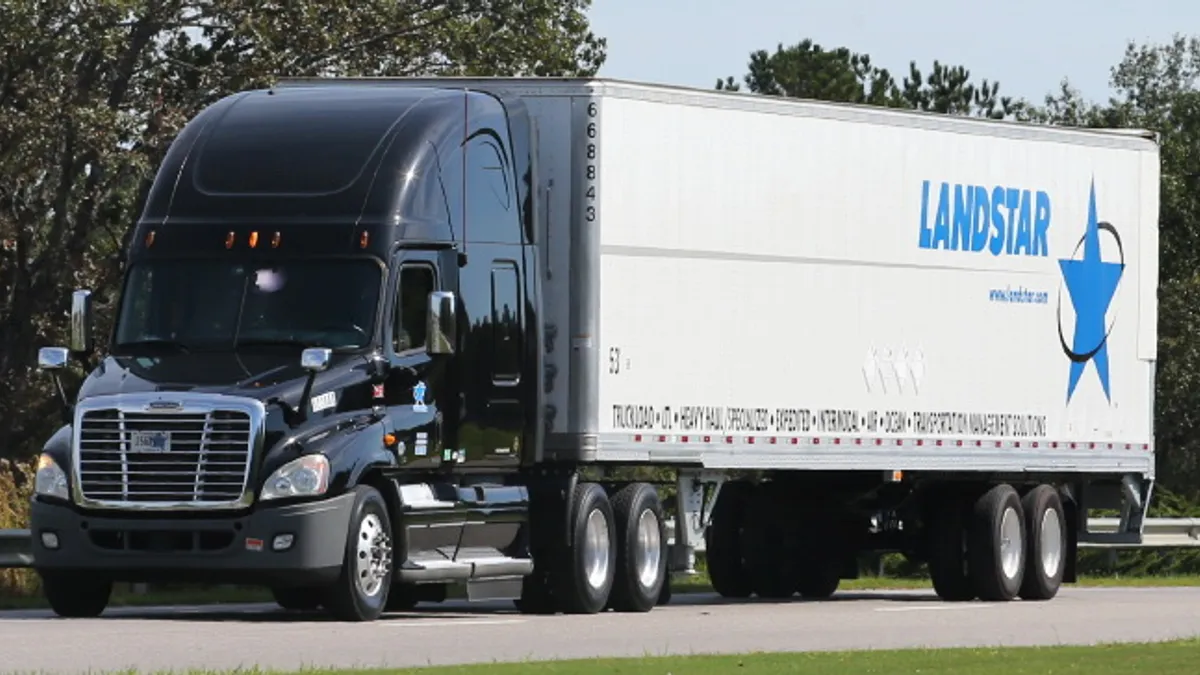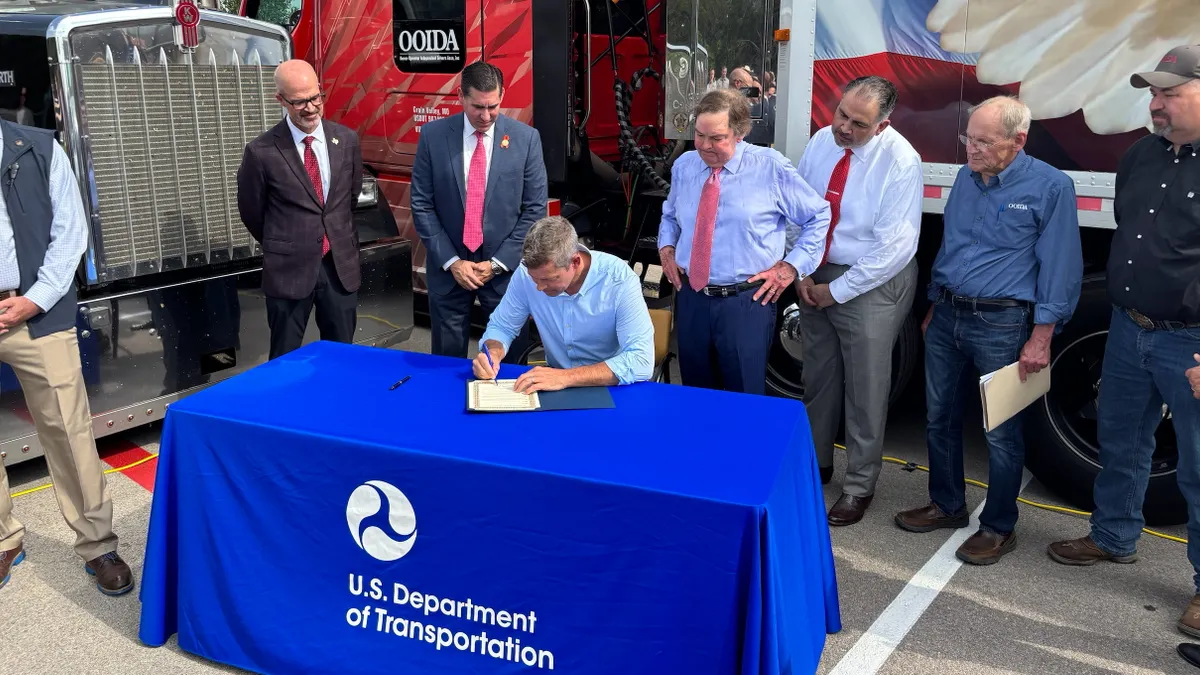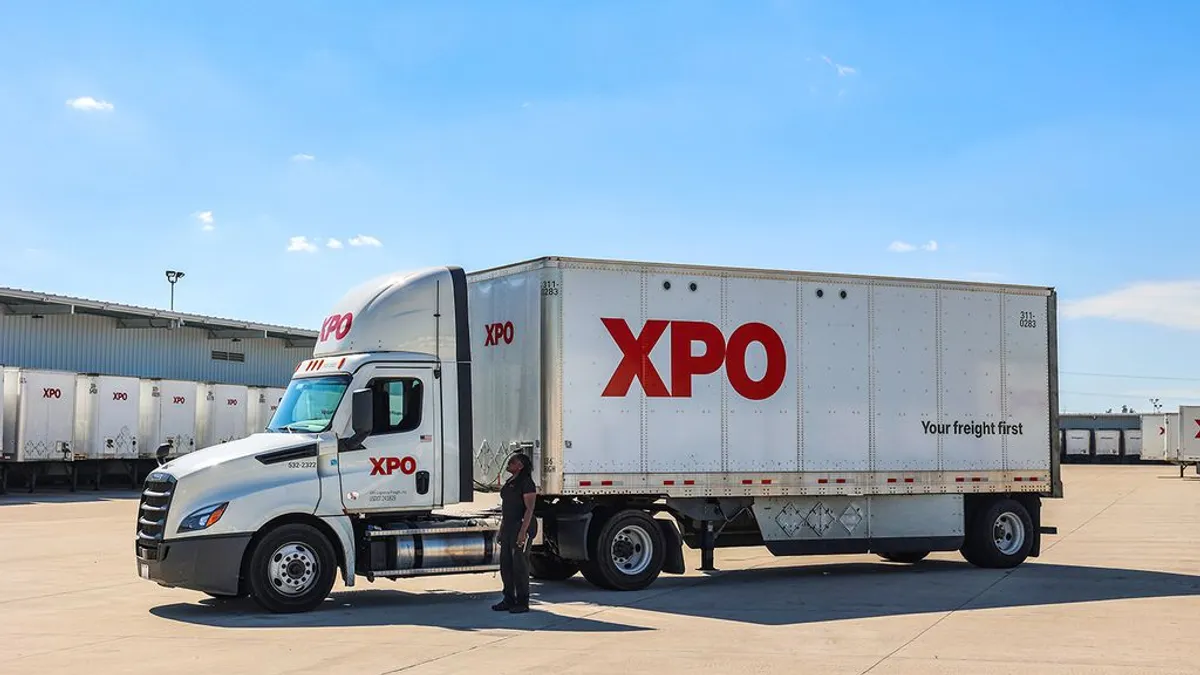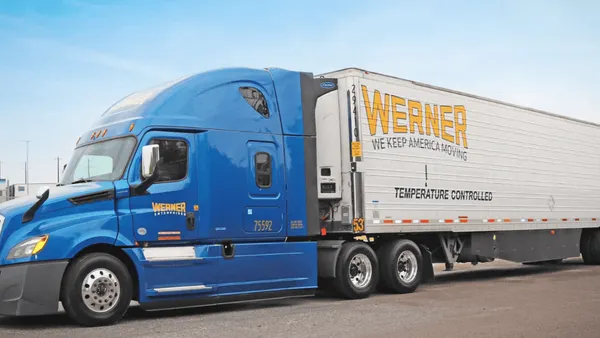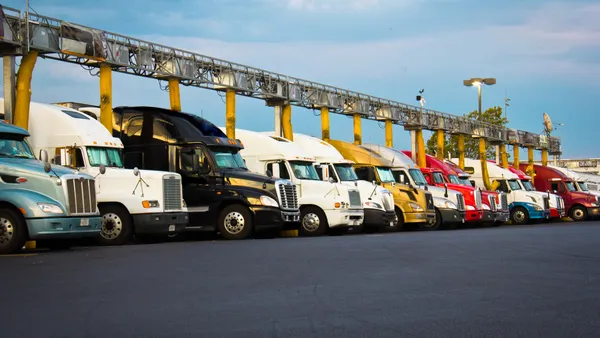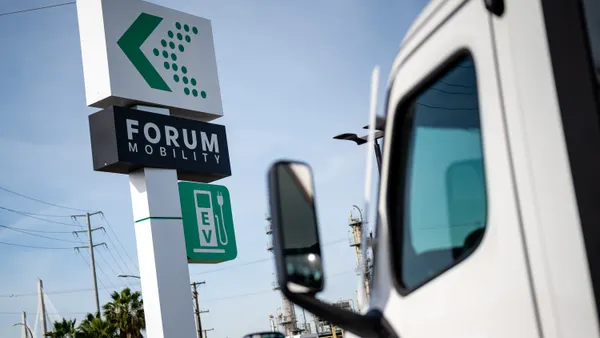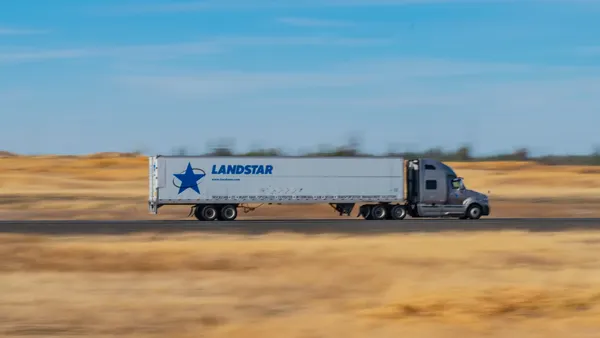Dive Brief:
- Landstar could lose up to $100 million in revenue in Q1 because of the Russian invasion of Ukraine, according to an 8-K filing made with the SEC by the Florida-based carrier on Feb. 28.
- Landstar said its largest independent commission sales agency, which is based in the United States but has significant operations in eastern Ukraine, is seeing large disruptions from the war. Another of its largest independent commission sales agencies conducts a portion of its operations in western Ukraine.
- A prolonged crisis could have severe implications for Landstar's bottom line, with the two agencies earning $860 million, or 13%, of the company's revenue in 2021, according to the filing.
Dive Insight:
The war in Ukraine has hit home for Landstar. The filing is one of the first signs the war could have significant impacts on North American for-hire carriers and private fleets beyond just the price of oil, which is surging.
Landstar was blunt in its assessment of its risk, stating it stands to lose about $20 million to $25 million in the company’s truckload revenue per week if the war in Ukraine continues to impact operations at the two agencies.
And there is no end in sight, Landstar warned: "The length and depth of the business disruption caused by the Russian invasion of Ukraine in future quarters to the businesses of these two independent commission sales agencies cannot be predicted at this time."
Early in the conflict in late February, FedEx and UPS suspended service into and out of Ukraine. Oleg Yanchyk, co-founder and CIO of Sleek Technologies, a procurement software firm that works with shippers and carriers, said the war could have cascading global effects on supply chains, such as higher line-haul trucking rates and other transportation costs due to rising oil prices.
The conflict could weave itself even deeper into North American supply chains and the freight logistics sector. Ukraine supplies the U.S. market with more than 90% of neon, which is crucial for semiconductor chips, according to Reuters. The White House is eager to see chip manufacturers turn to other sources, but that could take time.
Semiconductor chips are crucial to Class 8 tractors, and slowdowns in chip manufacturing have slowed down Class 8 manufacturing in the United States. Semiconductor chips collect data in the tractor, and between 15 to 35 chips can be needed per tractor, according to Don Ake, FTR vice president of commercial vehicles.
The global supply chain crisis and two fires in major chip factories abroad, one in late 2020 and one in early 2021, had already hit the market hard. Now a conflict in Ukraine threatens to cause another wave of issues in North American trucking.
Still, Landstar says it will manage through the latest crisis. In the filing, the company said that even with a complete disruption to its Ukrainian business, overall Q1 revenue will exceed its high-end estimates, perhaps leading to a percentage change in the positive single-digits, year over year.


